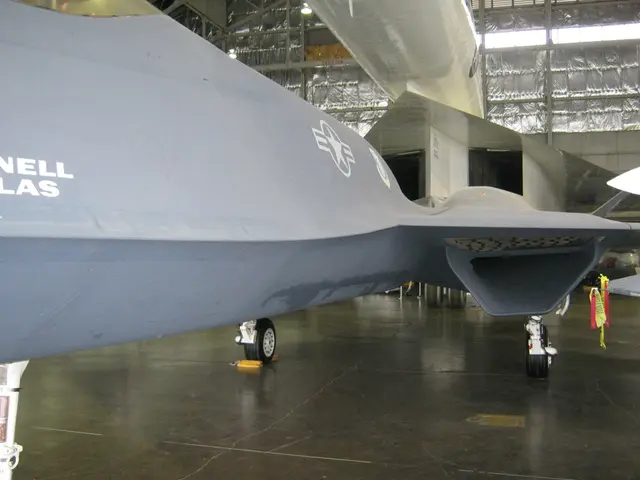Space sector in Europe faces potential closures
Europe Seeking Autonomy in Space as Dependence on NASA Persists
Fifty years after the establishment of the European Space Agency (ESA), Europe faces renewed questions about its role in space exploration. As the U.S. and China plan ambitious lunar missions, Europe remains dependent on NASA, prompting calls for more independence. However, competition from private sector players is adding pressure.
Space Race and Dependent Access
The U.S. aims to send humans back to the moon by 2027, and China targets a manned lunar landing by 2030. India plans a mission by 2040, while Europe aspires to send a European astronaut to the moon by 2030; yet, it cannot control this mission as its astronauts will fly as part of the U.S.'s "Artemis" project. America's focus on Mars has raised concerns that "Artemis" could be cancelled before a European board, threatening Europe's lunar aspirations.
Struggling for Independence
Europe lacks independent access to space for manned flights. While there is a European spaceport in Kourou, French Guiana, and the agency possesses launchers like Vega C and Ariane 6, it cannot send humans into space independently and remains reliant on NASA. European-U.S. cooperation in space is crucial, but questions about the reliability of agreements under President Trump have increased the urgency for Europe to strengthen its autonomy and deepen other partnerships.
Global Collaboration
The ESA already collaborates closely with the Japanese space agency JAXA. Relations with India and South Korea have become stronger, according to ESA reports. The agency also partners with multiple other space agencies worldwide, positioned as a highly recognized and trusted partner globally.
Prioritizing Regional Strength
ESA Director Josef Aschbacher has emphasized the need for Europe to develop its capabilities in space and increase self-reliance to be a strong international partner. By doing so, space can be a tool for strengthened international cooperation and the pursuit of diplomatic objectives for a more peaceful world.
Aging Technology: Ariane 6 Concerns
Martin Tajmar, a space expert from TU Dresden, has raised concerns about Ariane 6, Europe's pride and a vital element for independently launching satellites. Despite being crucial for satellite launches, the launcher is outdated according to Tajmar. Notable contracts for Ariane 6 primarily come from Amazon founder Jeff Bezos, who prefers not to fly with SpaceX.
The ESA's New Agenda
The ESA, comprising 23 member states, now aims to become more agile and foster technical innovation in the private sector. To this end, the agency has launched competitions among European companies for both a new cargo spacecraft and a new launch vehicle. The agency's dependence on lengthy decision-making processes and limited finances prevents it from acting like a private company, but it hopes to address this issue by focusing more on fostering innovation.
Upcoming Space Stations
ESA has signed letters of intent with potential space station operators to replace the International Space Station (ISS) once it ends its mission in 2030. ESA recognizes the need to develop within space itself and looks to the private sector for potential collaborations in this sphere.
Success Stories and Past Achievements
ESA has made significant progress in measurement programs and scientific projects, including navigation with "Galileo" and Earth observation with "Copernicus," as well as the James Webb space telescope, which has provided fantastic images from space and offered new insights to specialists.
From Humble Beginnings to Strategic Ambitions
The ESA started in 1975 when representatives from ten countries, including Germany, gathered in Paris to strengthen cooperation in space. The agency now comprises 23 member states, an outcome that stemmed from earlier precursor organizations like Eldo and Esro, which date back to 1964.
The ESA is taking steps to ensure it becomes less dependent on NASA and addresses growing competition from private sector players. This ambition focuses on several fronts, including technological innovation, increased collaboration, and the development of comprehensive legal frameworks to guide space activities. As Europe works towards achieving strategic autonomy in space, the next 50 years of ESA may well define Europe's role as a prominent player in the global space race.
Sources: ntv.de, Rachel Boßmeyer, dpa
- ESA
- Europe
- Space exploration
- The European Space Agency (ESA) is actively working to reduce its dependence on NASA and address competition from private sector players, aiming to become less reliant on the U.S. for manned spaceflights.
- To achieve strategic autonomy in space, ESA is focusing on technological innovation, fostering international collaboration, and establishing comprehensive legal frameworks for space activities, mirroring the competitive landscape in fields such as science, finance, and the private space sector.








